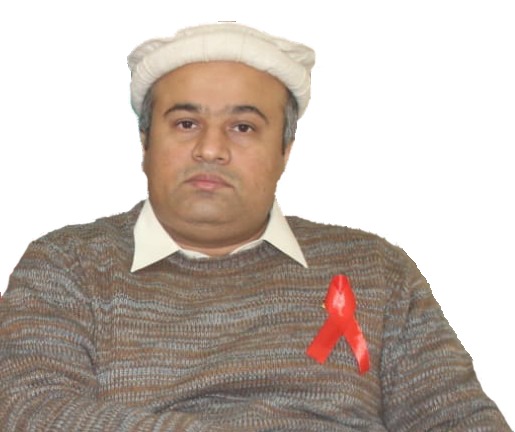Aphasia - Symptoms, Risk factors and Treatment
Last Updated On Monday, March 2, 2026
Aphasia in Urdu
Aphasia ایک ایسی حالت ہے جس میں آپ کو بولنے میں دشواری ہوتی ہے۔ یہ آپ سے بات چیت کرنے کی صلاحیت کو چھین لیتا ہے۔ آپ کی زبان لکھنے، بولنے اور سمجھنے کی صلاحیت، تحریری اور زبانی دونوں، متاثر ہو سکتی ہے۔
تقریر کے apraxia میں، دماغ تقریر کی حرکات کے لیے منصوبے تیار کرنے کے لیے جدوجہد کرتا ہے، اس لیے نہیں کہ تقریر کے عضلات کمزور ہیں بلکہ اس لیے کہ دماغ اچھی طرح سے ہم آہنگی نہیں کر پاتا اور اعمال کو ہدایت دینے میں دشواری کا سامنا کرنا پڑتا ہے۔ صحیح طریقے سے بات کرنے کے لیے دماغ کو یہ سیکھنے کی ضرورت ہے کہ جبڑے اور ہونٹوں کی طرح تقریر کے پٹھوں کی حرکت کیسے کی جائے۔ Apraxia کے ساتھ، دماغ کو ایسا کرنے میں دشواری کا سامنا کرنا پڑتا ہے۔ اسپیچ تھراپی اپراکسیا کے علاج میں مدد کر سکتی ہے۔ اس کے ساتھ aphasia نامی عارضہ بھی ہو سکتا ہے۔ لیکن دونوں کی شرائط بالکل مختلف ہیں۔ aphasia میں، شخص کو الفاظ کے ساتھ اظہار کرنے میں دشواری کا سامنا کرنا پڑتا ہے۔ انہیں اپنے اندر اور الفاظ کو سمجھنے اور استعمال کرنے میں دشواری ہوتی ہے۔ aphasia کے شکار افراد کو پڑھنے، لکھنے اور بولنے میں مشکل پیش آتی ہے۔ لیکن apraxia کے شکار شخص کو تقریر کے لیے ضروری حرکات شروع کرنے اور انجام دینے میں دشواری ہوتی ہے۔
عام طور پر apraxia فالج کے بعد یا دماغ کو متاثر کرنے والے کچھ ٹیومر کی وجہ سے ہوتا ہے۔ مزید یہ کہ یہ ایسی بیماریوں کی وجہ سے بھی ہو سکتا ہے جو دماغ میں تنزلی کا باعث بن سکتی ہیں۔ بیماری کی شدت مختلف عوامل پر منحصر ہے، بشمول دماغ کو پہنچنے والے نقصان کی وجہ اور حد۔
Aphasia in English
Aphasia is a condition in which you have difficulty speaking. It robs you of the ability to communicate. Your ability to write, speak and understand language, both written and verbal, may be affected.
In apraxia of speech, the brain struggles to develop plans for speech movements, not because the muscles of speech are weak but because the brain can not coordinate well and faces difficulty in directing the actions. To speak in the right manner, the brain needs to learn how to make the movement of the speech muscles like that of the jaw and lips. With apraxia, the brain faces difficulty in doing that. Speech therapy can help in the treatment of apraxia. It can also be accompanied by a disorder called aphasia. But both the conditions are quite different. In aphasia, the person faces difficulty expressing themselves with words. They have difficulty in understanding and using words in and of themselves. People with aphasia find it difficult to read, write and speak. But a person with apraxia has difficulty in initiating and performing the movements one needs for speech.
Typically apraxia occurs after a stroke or due to some tumors that affect the brain. Moreover, it can also occur due to diseases that can cause degenerative changes in the brain. The severity of the disease depends on various factors, including the cause and extent of brain damage.
Symptoms
Aphasia itself is a sign of stroke or some other brain disease. A person with aphasia may have the following signs and symptoms;
- Speaking short sentences
- Speaking incomplete sentences and ones that do not make sense
- Speaking in such a way that one word sounds for another or substituting one word for another
- Speaking words that are hard to recognize or unrecognizable
- Can not understand other people’s conversation
- Writing sentences that do not make sense
Patterns of aphasia
People having aphasia may have different weaknesses and strengths, giving them different patterns. They can be defined as;
Expressive aphasia- also known as non-fluent aphasia or Broca’s aphasia is the one in which people can understand other people’s speech better than they speak.
Comprehensive aphasia- also known as fluent or Wernicke’s aphasia is a condition in which people may speak long, complex sentences that are unrecognizable, do not make any sense, and have incorrect or unnecessary words.
Global aphasia- the type of aphasia in which the person is not able to comprehend and faces difficulty forming sentences and words. It happens when extensive damage occurs to the brain’s language networks. People having global aphasia have a severe disability in expression and comprehension.
Causes
Aphasia mostly occurs after a stroke or due to some tumors that affect the brain. Moreover, it can also occur due to diseases that can cause degenerative changes of the brain like Alzheimer's disease, dementia, and epilepsy.
Treatment
The general treatment of aphasia is;
- Occupational therapy
- Physical therapy
- Speech therapy
Aphasia is usually a symptom of some underlying condition, due to other brain disorders. Therefore, treating them can help get rid of aphasia. In other cases, therapies may help in getting better.
Conclusion
Aphasia is a condition in which you have difficulty speaking. It robs you of the ability to communicate. Your ability to write, speak and understand language, both written and verbal, may be affected.



